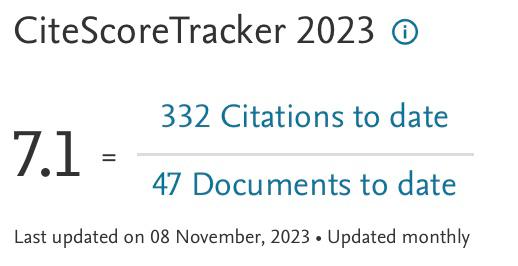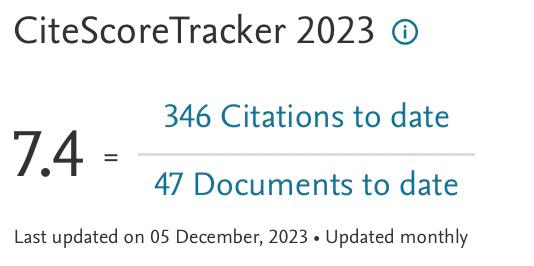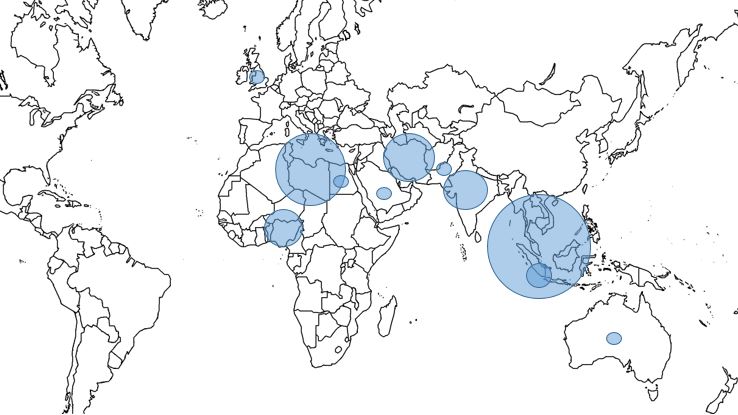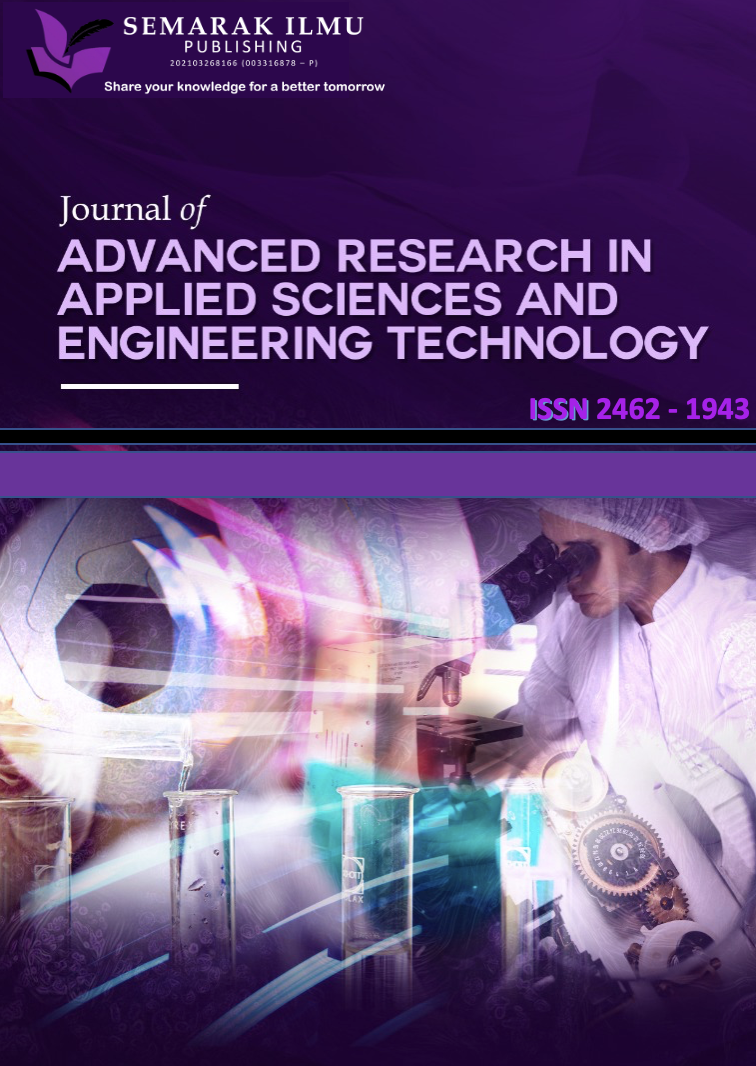Laminar Mixed Convection Heat Transfer Analysis in Horizontal Annuli using Hybrid Nanofluid
DOI:
https://doi.org/10.37934/arnht.13.1.5265Keywords:
Mixed Convection, Hybrid Nanofluid, Concentric Annulus, Buoyancy EffectAbstract
Heat transfer can be augmented by employing different methodologies and techniques, such as increasing either the heat transfer surface or the heat transfer coefficient between fluid and surface that allows high heat transfer rates in a small volume. The enhanced thermal behavior of nanofluids could supply a basis for a huge innovation in heat transfer intensification. Recently, a new type of nanofluid, known as hybrid nanofluid, which consists of a mixture of two different nanoparticles suspended in the base fluid like water. The present study deals with the analysis of laminar mixed convection heat transfer in horizontal annuli using hybrid nanofluid with the thermal boundary condition of constant heat flux at the inner wall and isothermal outer wall. The SIMPLER numerical algorithm is adopted in the present study. The hybrid nanofluid consists of water as base fluid and Ag-TiO2 as nanoparticles. The ratio of Ag to TiO2 is maintained as 1:3. Main objective of the present study is to compute numerically three-dimensional axis-symmetric, incompressible, steady, laminar flow through annular ducts to investigate the effect of the hybrid nanofluid Ag-TiO2/water on thermal-hydrodynamic characteristics. The analysis reveals that secondary flow due to the buoyancy forces plays an important role in augmenting heat transfer. The development of axial flow and temperature field are strongly found to be influenced by buoyancy. Nusselt number near the entrance region is found to be maximum, then attains a minimum value at a location slightly away from the entrance, and then starts increasing slowly due to the increased buoyancy effects. Finally, the flow becomes almost stable and a nearly constant value of Nusselt number is observed as the flow approaches fully development situation. At a given axial location Nusselt number was found to increase with increasing volumetric concentration of nanoparticle. The effect of Gr Radius ratio on the Nusselt number was also studied
Downloads
References
Benkhedda, Mohamed, Toufik Boufendi, and S. Touahri. "Laminar mixed convective heat transfer enhancement by using Ag-TiO 2-water hybrid Nanofluid in a heated horizontal annulus." Heat and Mass Transfer 54 (2018): 2799-2814. https://doi.org/10.1007/s00231-018-2302-x
N. Hattori. "Combined free and forced convection heat transfer for fully developed laminar flow in concentric annuli, numerical analysis." Trans. JSME (1979): 227-239. https://doi.org/10.1299/kikaib.45.227
Mojtabi, Abdelkader, and J-P. Caltagirone. "Analyse du transfert de chaleur en convection mixte laminaire entre deux cylindres coaxiaux horizontaux." International Journal of Heat and Mass Transfer 23, no. 10 (1980): 1369-1375. https://doi.org/10.1016/0017-9310(80)90211-2
Nguyen, T. Hung, P. Vasseur, L. Robillard, and B. Chandra Shekar. "Combined free and forced convection of water between horizontal concentric cylinders." (1983): 498-504. https://doi.org/10.1115/1.3245613
Kotake, S., and N. Hattori. "Combined forced and free convection heat transfer for fully-developed laminar flow in horizontal annuli." International journal of heat and mass transfer 28, no. 11 (1985): 2113-2120. https://doi.org/10.1016/0017-9310(85)90105-X
Nieckele, A. O., and S. V. Patankar. "Laminar mixed convection in a concentric annulus with horizontal axis." (1985): 902-909. https://doi.org/10.1115/1.3247519
Kaviany, M. "Laminar combined convection in a horizontal annulus subject to constant heat flux inner wall and adiabatic outer wall." (1986): 392-397. https://doi.org/10.1115/1.3246935
Ciampi, M., Sergio Faggiani, Walter Grassi, Frank P. Incropera, and G. Tuoni. "Experimental study of mixed convection in horizontal annuli for low Reynolds numbers." In International Heat Transfer Conference Digital Library. Begel House Inc., 1986. https://doi.org/10.1615/IHTC8.2910
Karki, Kailash C., and Suhas V. Patankar. "Laminar mixed convection in the entrance region of a horizontal annulus." Numerical heat transfer 15, no. 1 (1989): 87-99. https://doi.org/10.1080/10407788908944678
Nonino, Carlo, and Stefano Del Giudice. "Finite element analysis of laminar mixed convection in the entrance region of horizontal annular ducts." Numerical Heat Transfer, Part A Applications 29, no. 3 (1996): 313-330. https://doi.org/10.1080/10407789608913795
Islam, Nazrul, Uday N. Gaitonde, and G. K. Sharma. "Combined free and forced convection heat transfer in a horizontal annulus." In International Heat Transfer Conference Digital Library. Begel House Inc., 1998. https://doi.org/10.1615/IHTC11.3210
Mohammed, Hussein A., Antonio Campo, and Rahman Saidur. "Experimental study of forced and free convective heat transfer in the thermal entry region of horizontal concentric annuli." International Communications in Heat and Mass Transfer 37, no. 7 (2010): 739-747. https://doi.org/10.1016/j.icheatmasstransfer.2010.04.007
Islam, Nazrul, U. N. Gaitonde, and G. K. Sharma. "Mixed convection heat transfer in the entrance region of horizontal annuli." International journal of heat and mass transfer 44, no. 11 (2001): 2107-2120. https://doi.org/10.1016/S0017-9310(00)00223-4
Albeshri, Badr Ali Bzya, Nazrul Islam, Ahmad Yahya Bokhary, and Amjad Ali Pasha. "Hydrodynamic Analysis of Laminar Mixed Convective Flow of Ag-TiO2-Water Hybrid Nanofluid in a Horizontal Annulus." CFD Letters 13, no. 7 (2021): 47-57. https://doi.org/10.37934/cfdl.13.7.4557
Yoo, Joo-Sik. "Mixed convection of air between two horizontal concentric cylinders with a cooled rotating outer cylinder." International journal of heat and mass transfer 41, no. 2 (1998): 293-302. https://doi.org/10.1016/S0017-9310(97)00141-5
Nouar, C. "Numerical solution for laminar mixed convection in a horizontal annular duct: Temperature‐dependent viscosity effect." International journal for numerical methods in fluids 29, no. 7 (1999): 849-864. https://doi.org/10.1002/(SICI)1097-0363(19990415)29:7<849::AID-FLD820>3.0.CO;2-F
Nouar, Chérif, Braham Benaouda-Zouaoui, and Christophe Desaubry. "Laminar mixed convection in a horizontal annular duct. Case of thermodependent non-Newtonian fluid." European Journal of Mechanics-B/Fluids 19, no. 3 (2000): 423-452. https://doi.org/10.1016/S0997-7546(00)00120-5
Habib, M. A., and A. A. A. Negm. "Laminar mixed convection in horizontal concentric annuli with non-uniform circumferential heating." Heat and Mass Transfer 37, no. 4-5 (2001): 427-435. https://doi.org/10.1007/s002310000153
Chénier, Eric, G. Petrone, and Guy Lauriat. "From natural to mixed convection in horizontal and differentially heated annular ducts: Linear stability analysis." International journal of heat and mass transfer 54, no. 23-24 (2011): 5100-5108. https://doi.org/10.1016/j.ijheatmasstransfer.2011.07.028
Patankar, Suhas. Numerical heat transfer and fluid flow. Taylor & Francis, 2018. https://doi.org/10.1201/9781482234213


























